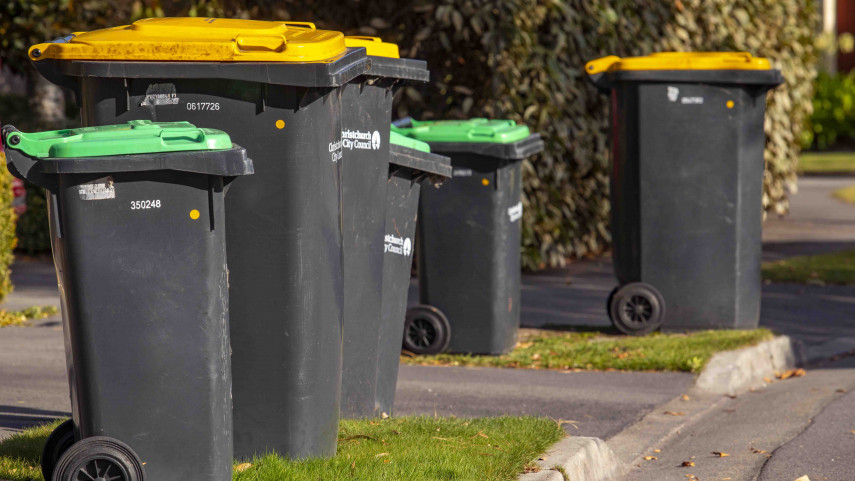
Proposal for flexible wheelie bin system unveiled

Share this story
Christchurch City Council is seeking the public’s views on a flexible wheelie bin system that would allow people who choose to down-size their bins to pay less.
“We want to respond to residents’ calls for more choice in the size of the bins that they have so we are proposing to introduce a flexible bin system where you only pay for what you use,’’ says Council Head of Three Waters and Waste Helen Beaumont.
“Currently each household gets a standard size of bins which they pay for through their rates. Under the new system we are proposing, people will be able to choose the size of their red, green and yellow wheelie bin.
“If they choose to go small, they will pay less. For example, if they choose to downsize all three wheelie bins to 80 litres, they’ll save about $50 a year. If they choose to only downsize their red bin, they’ll save about $35,’’ Ms Beaumont says.
The lower charges for smaller sized bins reflects the fact that they hold less material.
“It costs us more to dispose of rubbish than to process recycling or organics,’’ Ms Beaumont explains. “While we recover some costs for recycling and organics we still pay to process them – nothing is free. This is why if you choose a smaller bin it will cost you less and a bigger bin will cost you more.’’
Under the proposal people who opt for a bigger red bin – a 240 litre capacity bin – will get charged an extra $105 a year, on top of the standard kerbside bin charge.
“People have told us they want an option of a big red bin but it will cost more because there is more material to take to landfill,’’ Ms Beaumont says.
“Offering a larger red option will provide more rubbish capacity for large households. It may also help to reduce recycling contamination by providing more space for rubbish so it doesn’t get put into the yellow bin. Our neighbouring Councils - Selwyn and Waimakariri - offer residents the option of a large red bin and we want to offer the same service to our residents.’’
Christchurch City Council already offers residents the opportunity to get a large organics bin through its contractor – at a cost of an extra $196 a year.
Under the proposed flexible bin system, the cost of upgrading to a large green bin would only be an extra $85 a year.
“Offering a large organics bin helps prevent excess green waste going into the red bin,’’ Ms Beaumont says. “The more organics that goes into the green bin, the more we can compost, preventing it going to landfill – saving money and the environment.’’
As part of the proposal to move to a flexible bin system, the Council is also looking at making some billing changes to make the costs of the kerbside collection clearer.
“You already pay for your kerbside bins in your rates now. Currently your charges are split into two different rating types so it’s not clear how much you pay for your kerbside service.
“To make the costs clearer, we are proposing that the existing targeted rate will cover all kerbside collection and processing costs,’ Ms Beaumont says.
“We want to know what people think about the changes we are proposing. It’s a chance for us to engage early with our communities and get some initial feedback on what we’re proposing. More information on the proposal will be communicated when we prepare the 2022/23 Annual Plan next year.’’
